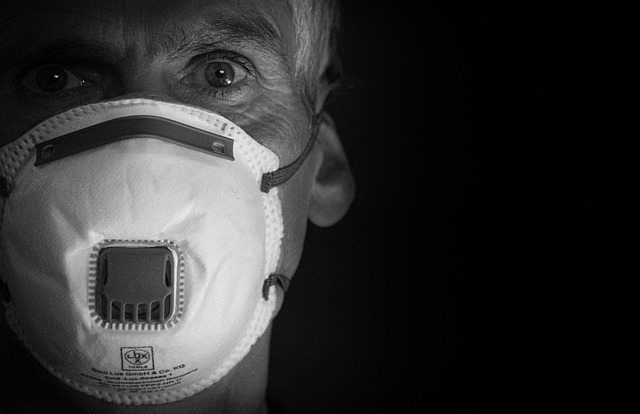Regenerative solutions for fatigue, including stem cell therapy, mitochondrial health therapy, PRP therapy, and peptide therapy, are revolutionizing the approach to energy restoration treatments. These therapies harness the body's natural healing processes to combat chronic exhaustion by repairing and rejuvenating cells, particularly targeting mitochondrial function for improved ATP production. Stem cell therapy introduces robust cells capable of differentiating into healthy ones, potentially alleviating symptoms of fatigue. PRP therapy uses a patient's own platelet-rich plasma to stimulate healing and regeneration at the site of injury or fatigue. Peptide therapy supports this by activating cellular repair mechanisms that enhance energy production. Collectively, these therapies offer a personalized, multifaceted strategy for addressing fatigue from multiple angles, providing hope for individuals seeking effective and sustainable solutions for sustained vitality. These advanced treatments mark a significant advancement in the field of regenerative medicine, offering a promising avenue for combating persistent fatigue.
Exploring the intersection of science and wellness, this article delves into innovative regenerative solutions for combating fatigue. We will examine how stem cell therapy and mitochondrial health treatments can reignite your energy. Additionally, the roles of PRP and peptide therapies in cellular rejuvenation will be highlighted to offer comprehensive insights into their potential for restoring vitality. Join us as we uncover the transformative power of science in revitalizing your energy reserves.
- Unveiling Regenerative Solutions for Fatigue: An Overview of Stem Cell Therapy
- Energy Restoration Treatments: Harnessing Mitochondrial Health Therapy for Vitality
- Cellular Rejuvenation and PRP Therapy: Revitalizing Approaches to Combat Fatigue
- Peptide Therapy for Fatigue Recovery: A Deep Dive into Restorative Potentials
Unveiling Regenerative Solutions for Fatigue: An Overview of Stem Cell Therapy

Stem cell therapy emerges as a pioneering regenerative solution for those grappling with persistent fatigue. This cutting-edge treatment harnesses the body’s own restorative capabilities by utilizing stem cells to repair and rejuvenate damaged or exhausted tissues, potentially revitalizing energy levels. Mitochondrial health therapy is often an integral component of such treatments, focusing on optimizing the efficiency of cellular powerhouses to enhance overall vitality. Additionally, platelet-rich plasma (PRP) therapy has shown promise in fatigue recovery by stimulating healing and regeneration at a cellular level, further contributing to energy restoration.
In the realm of cellular rejuvenation for energy, peptide therapy stands out as a non-invasive approach. These peptides signal cells to produce more energy and improve mitochondrial function, which is critical for combating fatigue. The strategic application of these peptides can lead to a noticeable improvement in an individual’s stamina and endurance, offering a viable alternative to traditional methods of managing fatigue-related conditions. By integrating these advanced therapies, healthcare providers can craft personalized treatment plans that cater to the unique needs of each patient, paving the way for sustainable energy restoration.
Energy Restoration Treatments: Harnessing Mitochondrial Health Therapy for Vitality

Mitochondrial health therapy has emerged as a cornerstone in the field of regenerative solutions for fatigue, offering a novel approach to cellular rejuvenation for energy. This treatment focuses on optimizing mitochondrial function, which is pivotal for ATP production and overall energy levels. By addressing the root cause of persistent fatigue, this therapy aims to enhance vitality by repairing and reinvigorating cells at a foundational level. Patients experiencing fatigue may benefit from stem cell therapy, another component within energy restoration treatments. This cutting-edge modality harnesses the body’s own healing capabilities by introducing young, viable stem cells that differentiate into healthy cells, potentially alleviating symptoms of chronic fatigue and promoting sustained energy.
Furthermore, PRP therapy for fatigue recovery is another regenerative solution that utilizes a patient’s own platelet-rich plasma to stimulate healing and enhance wellness. The concentrated growth factors found in PRP are known to accelerate tissue repair and increase metabolic activity, contributing to the restoration of energy levels. Additionally, peptide therapy for fatigue recovery is gaining traction as a non-invasive treatment that supports the body’s natural recovery processes. These peptides act as signaling molecules to activate cellular pathways that improve energy production and enhance overall wellness, making them a valuable addition to any comprehensive energy restoration program.
Cellular Rejuvenation and PRP Therapy: Revitalizing Approaches to Combat Fatigue

Cellular rejuvenation therapies, such as platelet-rich plasma (PRP) therapy and stem cell interventions, are emerging as regenerative solutions for fatigue that targets the root causes of energy depletion. PRP therapy harnesses a patient’s own blood components to stimulate healing and regeneration by injecting a high concentration of platelets into injured or tired tissue. This approach triggers the body’s natural repair mechanisms, promoting cellular rejuvenation for energy restoration in fatigued cells, particularly those with impaired mitochondrial health therapy function. The application of PRP in the context of combatting fatigue is a testament to its versatility and potential efficacy in restoring vitality at the cellular level.
Furthermore, peptide therapy for fatigue recovery is another avenue that complements PRP treatments. Peptides are small protein fragments with diverse functions; they can signal cells to repair damage or trigger various cellular responses. When combined with PRP, these peptides enhance the body’s ability to regenerate and recover from chronic fatigue. This synergistic effect ensures a comprehensive approach to energy restoration treatments, addressing both the immediate symptoms of fatigue and the underlying causes for long-term benefits.
Peptide Therapy for Fatigue Recovery: A Deep Dive into Restorative Potentials

Peptide therapy stands at the forefront of regenerative solutions for fatigue, offering a promising avenue for those suffering from debilitating exhaustion. These peptides, which are key components of cellular signaling, can be harnessed to enhance energy restoration treatments. By stimulating specific pathways in the body, peptide therapy facilitates a more efficient production of ATP within cells, directly targeting mitochondrial health therapy. This not only boosts energy levels but also supports overall wellness by optimizing the cellular environment for renewal and vitality.
In the realm of stem cell therapy for fatigue, researchers have found that these versatile cells can differentiate into various types of cells, potentially repairing damaged tissues and organs. This regenerative capacity may help restore energy levels by replenishing aged or compromised cells with new ones. Moreover, when combined with PRP (platelet-rich plasma) therapy for fatigue, stem cell treatments amplify their effects. PRP therapy concentrates a patient’s own platelets, rich in growth factors, to promote healing and accelerate cellular rejuvenation for energy, thereby enhancing the body’s natural restorative processes. Taken together, these advanced therapies offer a multifaceted approach to combat fatigue and restore vitality.
In recent years, the intersection of science and wellness has yielded promising regenerative solutions for combating fatigue. This article has delved into various innovative treatments, including stem cell therapy for fatigue, which holds great potential in restorative medicine. We’ve explored energy restoration treatments that harness mitochondrial health therapy to bolster vitality. Additionally, the article has highlighted cellular rejuvenation and PRP therapy for fatigue as key approaches, offering a pathway to renewed energy levels. Furthermore, peptide therapy for fatigue recovery has emerged as a significant player in this field, showcasing its restorative capabilities. Taken together, these therapies offer a comprehensive toolkit for individuals seeking to enhance their energy reserves through scientifically grounded wellness solutions. As these treatments continue to advance, they promise to reshape our understanding and management of fatigue-related conditions.
